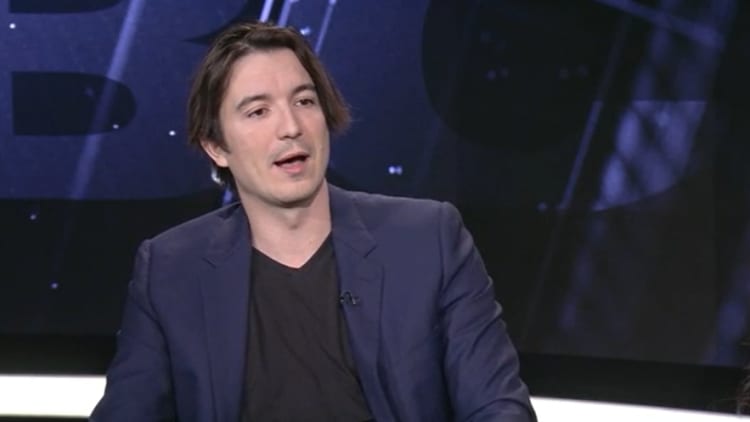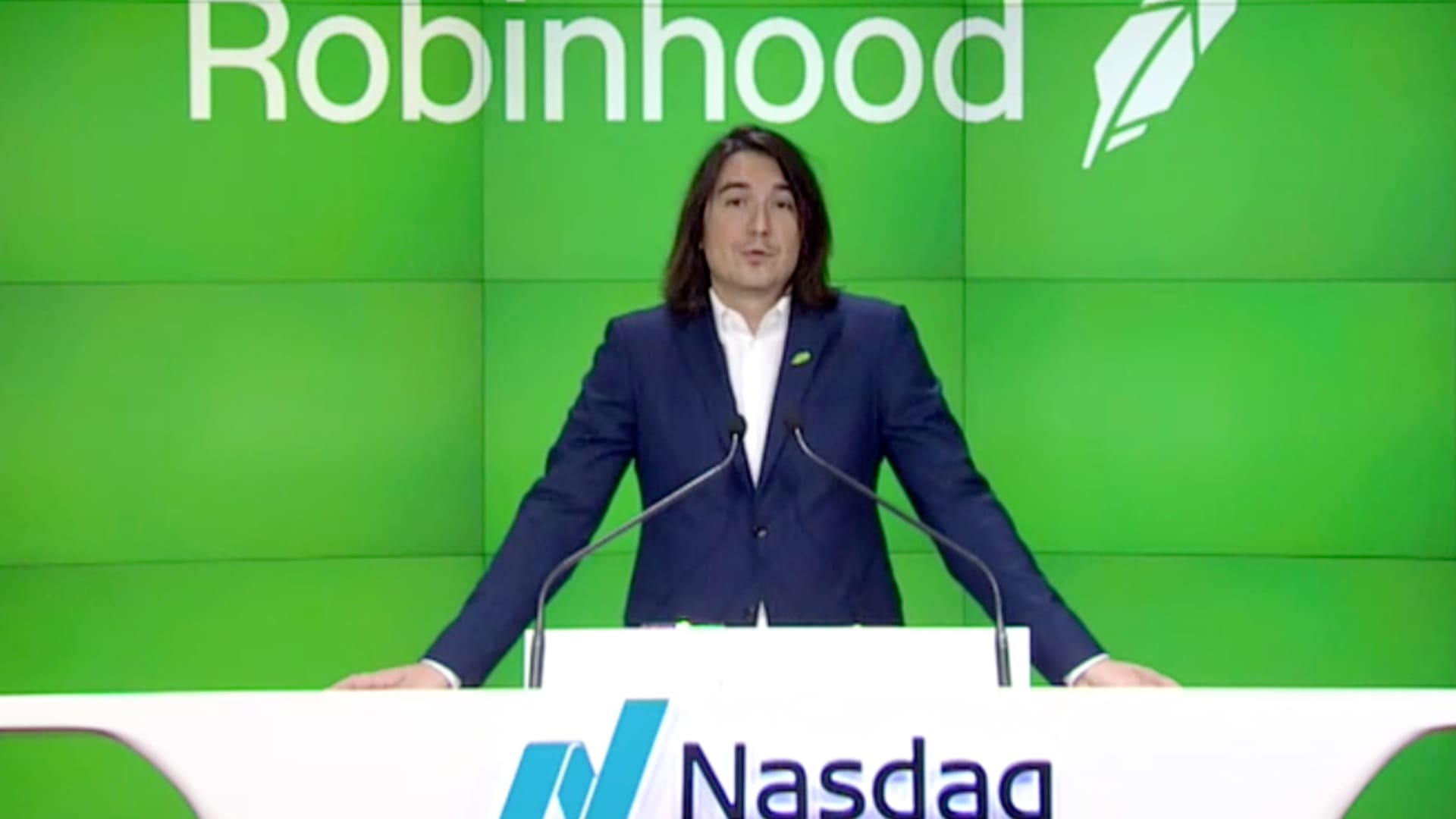Robinhood co-founder and CEO Vlad Tenev rings the opening bell at the Nasdaq on July 29, 2021.
Source: Nasdaq
Robin Hood CEO Vlad Tenev says he doesn’t believe the payments for order flow (PFOF) model of market-maker routing, which the company incorporates in the US, is in danger.
This is despite calls by consumer trade advocates and regulators to ban the practice.
Speaking with CNBC, Tenev defended the practice of PFOF, saying that it is “naturally here to stay.” PFOF is the practice of routing trades through market-makers such as Citadel Securities in exchange for a share of the profits.
“If I’m a business that’s selling things, and I’m generating transaction revenue, the more you use it, the more money you get. Naturally, there’s a conflict because I’m making more by getting you to do more transactions. Make money,” Tenev told CNBC in an interview.
“I think it’s important not to take the baby out with the bathwater. What does that mean, you shouldn’t make revenue on a transaction-based business? That’s unfair. And I think that’s part of the issue. It has been politicized to some extent.”
PFOF is considered controversial due to the alleged conflict of interest between the broker and clients.
Critics say that brokers have an incentive to direct order flow to market makers offering PFOF arrangements above the interests of their clients.
PFOF is banned in the UK, where Robinhood announced plans to launch on Thursday.
The US Securities and Exchange Commission considered banning PFOF in light of concerns over the practice, but chose not to do so, while the European Union has banned PFOF outright.
Tenev said PFOF accounts for a small portion of Robinhood’s revenue today, while the majority of its income today comes from net interest income generated from cash in user balances.
Transaction-based revenue, which includes PFOF, declined 7% in Robinhood’s second fiscal quarter to $193 million.
“If you look at equity, especially PFOF, it is about 5% of our revenue, so a very small component of the overall pie. And we have diversified the business quite a bit,” including other areas like securities lending, margin , and subscriptions.

Robinhood’s race to the bottom in terms of commission fees has forced many major players in the wealth management world to reduce their fees to zero, resulting in some companies shutting down or being sold to competitors.
TD Ameritrade was sold to Charles Schwab for $26 billion, while Morgan Stanley purchased E-Trade for $13 billion.
“In the US, Robinhood came in and really changed the industry,” Tenev said. “Discount brokers who are charging commissions have essentially ceased to exist.”
“They had to reduce commissions to zero. A lot of them couldn’t survive that change as standalone companies and eventually consolidated. And we’re still living through the end result of that.”







